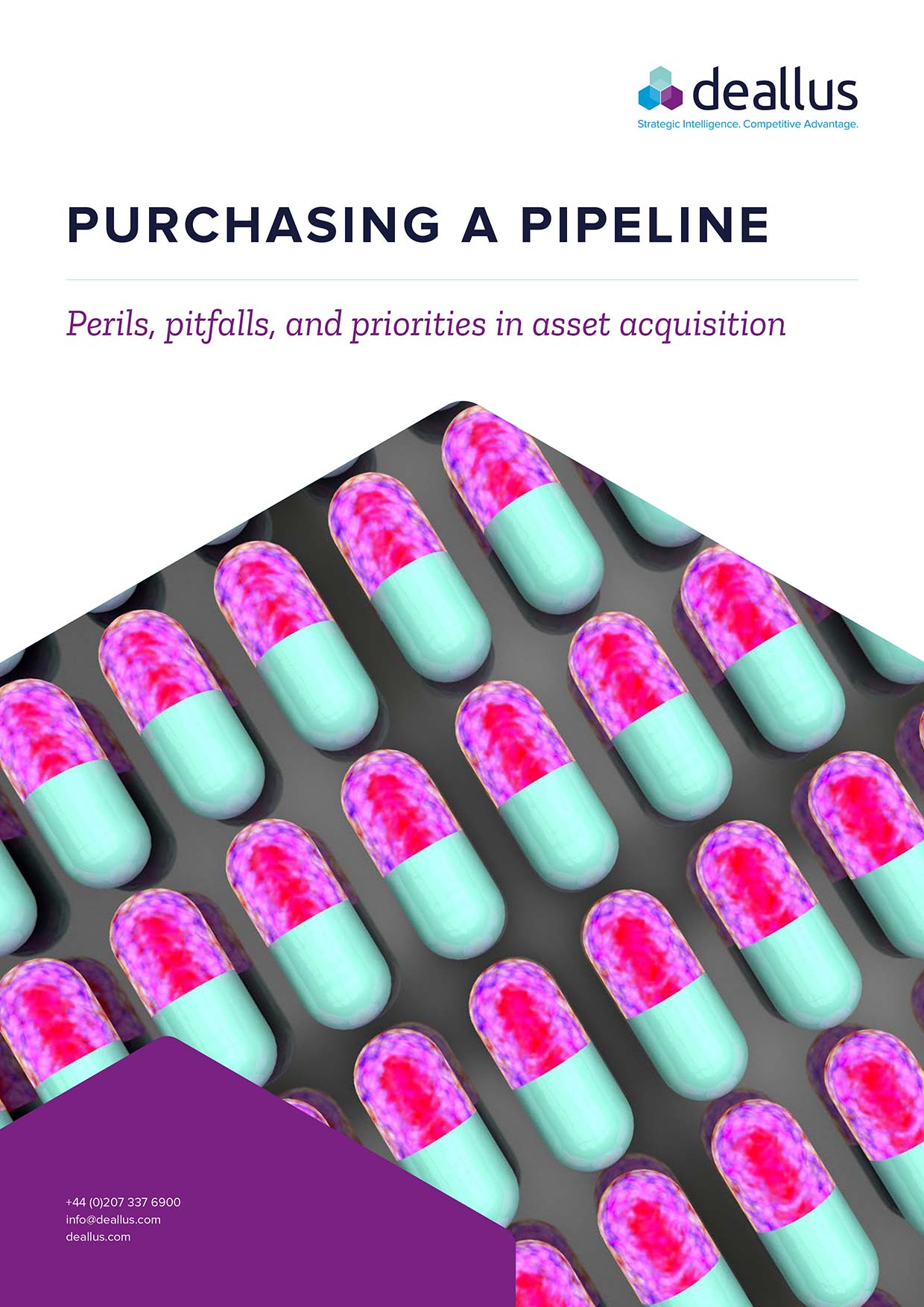Purchasing a pipeline – perils, pitfalls, and priorities in asset acquisition
Checkpoint inhibitors. Genetic therapies. Biomarker therapies. To hear big pharma tell it, we are living in an age of medical wonders.
The problem? In some patients, they make a huge difference. In others, they don’t work at all.
From a bench-science standpoint, that’s fascinating. But if you’re a pharmaceutical executive thinking seriously about pipeline asset acquisition, translating large-molecule science into high-profit marketability is fraught with complexity.
In this White Paper, we will look at new and changing trends in pipeline acquisition, discuss difficulties inherent in the current marketplace, and offer worthwhile perspectives on pitfalls and opportunities based on our experience offering strategic guidance to pharmaceutical companies on a global scale.
Big pharma pipelines are not what they used to be
The majority of new drugs measure their success in increments.
Orphan drugs and tightly targeted MOAs offer the most exciting breakthroughs, but they offer them to smaller and smaller groups of patients. New cancer drugs are launched with great fanfare even when their pivotal studies suggest they offer a scant three months’ improvement over the competition. Small molecules are languishing. Biologics, once heralded as an arena of unbounded promise, are nearing the end of their patent lives, negotiating payments worth millions to keep biosimilars off the market.
You may also be interested in…
GlobalData announces acquisition of market leading competitive intelligence solutions provider Deallus
GlobalData Plc, a London-based leading data and analytics company, has completed the acquisition of Deallus from private equity firm Archimed. Deallus is a London-based market-leading competitive intelligence solutions provider focused on the global life sciences sector.
Uncertainty is here to stay
Another turbulent year is ending, marked by economic, geopolitical, and technological shifts. With six decades behind me, I embrace this uncertainty as the norm. What does this mean for corporate decisions, especially in Pharma?
Season’s Greetings
From all of us at Deallus we wish all our clients, colleagues and friends a very peaceful and prosperous festive season.
The Migraine unveiling: Bringing the invisible disability to light
Globally, headache disorders affected approximately 40% of the population, or 3.1 billion people in 2021. A migraine attack goes beyond a severe headache; it is a constellation of symptoms that may include neck pain, nausea, dizziness, visual disturbances and sensitivity to light, sounds and smell among a variety of other manifestations.





